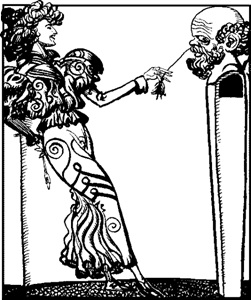 영어토론방 영어토론방 | Home>영어토론방 |
Technique Transsexuals get legal protections
페이지 정보

본문
 The Supreme Court, on June 22, ruled that a transsexual will be allowed to legally switch gender to that of a male on family registration records.
The Supreme Court, on June 22, ruled that a transsexual will be allowed to legally switch gender to that of a male on family registration records. It was the first time that the top court ruled in favor of a sex change on official records, and it is expected that similar lawsuits will be filed by other transsexuals on the matter. The court overturned a lower court’s ruling that did not permit the man, who changed gender from that of a female through a transsexual operation, to change his sex registered in the ``hojok,’’ or family registration record. Previously, the Supreme Court had not recognized sex change operations. In 1993, the court said changing gender on the hojok was impossible in response to a military general’s inquiry about a transsexual soldier.
The court ruling states that “if a person has the appearance of the opposite sex to his or her birth sex through an operation and is apparently recognized as the new sex socially, it is reasonable to recognize the switched sex, because he or she has the right to enjoy human dignity and pursue happiness.”Current laws do not have any clauses about the standard to decide gender and about the procedure of changing sex. But in deciding gender, we should consider not only biological aspects but also mental and social aspects, according to the ruling.
“Changing the registered sex on the hojok does not affect the transsexual’s original family relationship, rights or duties. Also, names are commonly the basic standard in identifying sex, so a name change can also be allowed alongside the legal gender change,” the court added. The man in his 50s, whose name was not disclosed, underwent a transsexual operation to change his sex from female to male, and filed the suit with a local court in 2003 to legally switch the gender registered in his family’s hojok. But he lost the suit at that court and the appellate court, and so appealed to the Supreme Court.
So far, lower courts have given different verdicts case by case, as current civil laws and family registration laws do not have clauses defining the concept of gender. The rulings were different according to whether judges viewed gender being decided by sex chromosomes only, or that mentality was another factor that affects gender. In 2002, Harisu, the nation’s most famous transsexual entertainer, was allowed to legally become a woman by a court. Since then, the number of transsexuals who file for gender registration change has grown, but only a few have obtained permission.
In 2004, 10 out of 22 transsexuals who filed suits for sex registration change were given permission, and last year, 15 among 26. Yesterday’s ruling is expected to have an influence on similar pending cases filed by transsexuals. There are no statistics about the number of the nation’s transsexuals, but it is estimated there may be up to 30,000.
``The ruling acknowledged transsexuals’ right to happiness and prepared legal guidelines for them with regard to their social life such as marriage and employment,’’ said Han Mu-ji, a representative of a transsexuals’ human rights association. But religious groups are opposed to the recognition of sex changes and claim it will cause chaos in the society’s recognition of gender. They say the ruling was a hasty one going against the general sentiment of society. In foreign countries, Sweden legislated a law allowing a legal gender switch in 1972, followed by Germany, Italy, the Netherlands and Britain. In the U.S., 15 states allow transsexuals’ to legally change their genders.
Following the ruling, the Military Manpower Administration said that it would not place men who legally change their sex to female under reserve military service obligations.
Question
1. Is there any transsexuals around you, or seen before?
When, how? How did you feel of them?
2. Have you ever thought of switching your gender?
why, or why you don't want to switch you gender?
3. Do you agree or disagree of switching gender?
What is the most big problem when they switch their gender?
4. In other ways, how could the government protect them?
이 글은「대학연합영어토론동아리」www.pioneerclub.com에서 제공하는 영어토론 정보입니다.
댓글목록
등록된 댓글이 없습니다.

